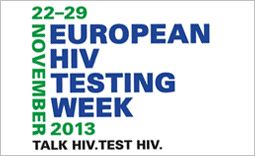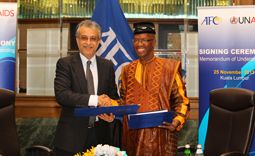
Feature Story
WHO: HIV Programme highlights significant achievements towards universal access
02 June 2010
02 June 2010 02 June 2010
A recent report by the World Health Organization (WHO), HIV/AIDS Programme Highlights 2008-09, outlines major accomplishments of the agency in collaboration with countries and partners in promoting interventions to accelerate the progress towards universal access to HIV prevention, treatment, care and support services.
The report highlights, for example, that there has been a sharp increase in HIV testing in recent years thanks to WHO and UNAIDS’ approach, called the provider initiated testing and counseling (PITC), where healthcare providers specifically recommend an HIV test to patients attending health facilities in certain settings.
WHO now recommends earlier initiation of antiretroviral therapy (ART); delivery of safer, more effective antiretroviral drugs (ARVs); and their prolonged use for the prevention of mother-to-child HIV transmission.
More than half of the 93 reporting countries developing programmes have addressed their human resource shortages in AIDS care through WHO’s strategy of “task shifting”.
Due in part to WHO's efforts, the volume and scope of data to measure progress in scaling-up priority HIV interventions has also improved substantially since 2008. For the first time, WHO, UNICEF and UNAIDS jointly collected data from national programmes worldwide.
Despite funding gaps and implementation challenges, measurable progress was seen in the 2008-2009 biennium. While much work remains, the HIV/AIDS Programme Highlights shows that progress can be achieved, even in the most difficult environments.



